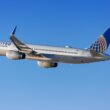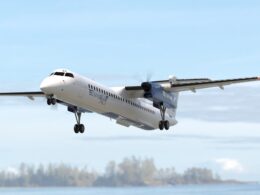EasyJet has suspended a pilot from duty after his messages, shared with friends on social media, raised questions about the person’s mental well-being. The EasyJet pilot situation and the airline’s reaction taps into a highly sensitive discussion on mental health and its issues experienced by pilots.
The airline has confirmed to AeroTime suspending a pilot “several days ago” after finding out that the person in question had expressed disappointment with life and admitted thinking about self-harm in a group chat on social media. However, EasyJet’s spokesperson has stressed that the pilot was “stood down” while the airline investigates the case and not banned or fired.
The airline has offered the following statement:
“We can confirm that the pilot was stood down from flying several days ago, in line with our procedures, while we investigate. We have offered support in the meantime.
“The safety and wellbeing of our passengers and crew is the airline’s highest priority. We offer support through an employee assistance programme (EAP), Pilot Peer Support Programme and we have a full Occupational Health provision across our UK & European network.
“We always take steps to ensure that easyJet’s pilots fully fit to operate. All pilots are licensed under aviation regulators and as part of this are subject to extensive regular medical assessments which include mental health assessments.”
The crash that brought pilots’ mental health to spotlight
The deliberate crash – as it was declared by French investigators, the Bureau d’Enquêtes et d’Analyses (BEA) – of Germanwings Flight 9225 by co-pilot Andreas Lubitz in March 2015, shocked the aviation world, spurring everyone in the industry to remember that the medical and psychological conditions of flight crews, if not detected, can lead to a fatal outcome.
On March 24, 2015, co-pilot Andreas Lubitz locked the captain of flight 9525, from Barcelona to Dusseldorf, out of the cockpit. Lubitz then deliberately set the plane on a collision course with a mountainside, killing all 150 people on board, including himself.
During the investigation it was determined that Lubitz had long suffered from depression. He sought professional help several times, concealing it from his employer, as it is widely known that he would quickly lose his pilot’s license should his treatment come to light.
The tragedy resulted in new rules in the UK, Germany, Canada, Australia and New Zealand among others, requiring two members of flight crew to be in the cockpit at all times. However, later several countries began to reconsider the rule. For instance, the Australian Civil Aviation Safety Authority has “found there were unintended consequential risks, including the second person in the cockpit potentially distracting the pilot, making inadvertent contact with cockpit switches and taking cabin crew away from their safety role in the cabin”.
Meanwhile, the EU flagged the mandatory psychological testing in 2016, but the new rules were not published until two years later. On July 25, 2018, the Commission of the European Union finally published new safety rules, which include requirements for airlines to perform a psychological assessment of their pilots before the start of employment, test their pilots and cabin crew for alcohol and ensure pilots have access to a support program that will assist and support pilots in recognizing, coping with, and overcoming problems which might negatively affect their ability to safely exercise the privileges of their license.
In December 2016, findings of a Harward study showed that one in eight commercial airline pilots might be suffering from depression, while 4% surveyed pilots struggled with suicidal thoughts. The study glimpsed into the mental health of pilots that hide their disorders from their management in fear of losing their jobs.








